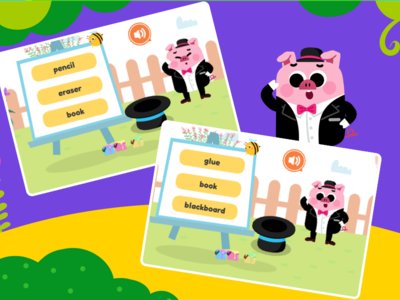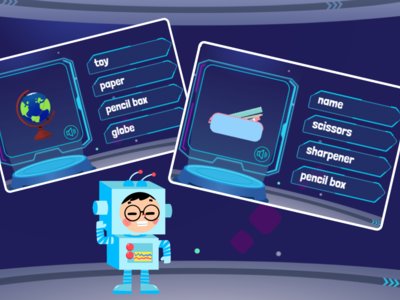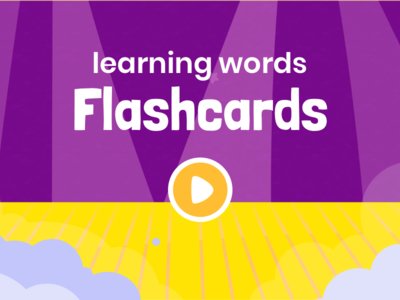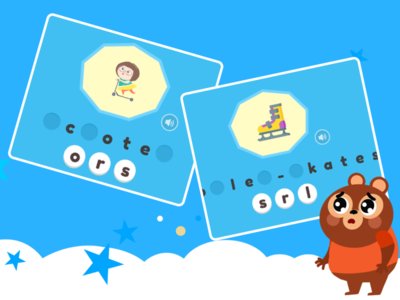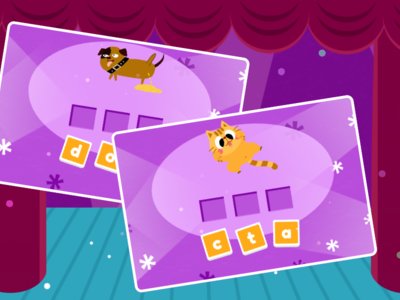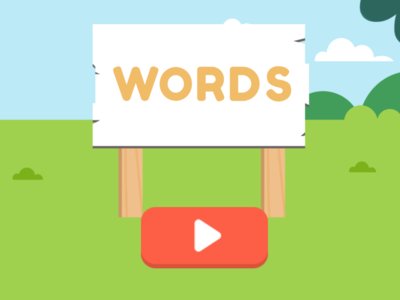Story time! Here is a story with the vocabulary list of the year of the Rabbit :)
As the sun began to rise over the bustling city of Beijing, China, the sounds of drums and fireworks filled the air. It was the day of the Chinese New Year, and the entire country was celebrating the start of a new year on the lunar calendar.
In the center of the city, a giant dragon dance was taking place, with performers dressed in elaborate dragon costumes twirling and weaving through the crowds. People crowded around to watch, cheering and clapping along to the beat of the drums.
As the dragon dance came to an end, people began to gather around the tables that were set up on the street. There were piles of oranges, symbolizing prosperity and good luck, and steaming hot dumplings filled with savory meats and vegetables.
Among the crowds of people were many children, dressed in their finest clothes and grinning from ear to ear. They had spent the morning decorating their homes with red lanterns and paper cuttings, and now they were excited to join in the celebrations and feast on the delicious foods.
As the day went on, the streets were filled with the sound of laughter and the smell of roasting meats. People exchanged gifts and good wishes for the new year, and many of the children received red envelopes filled with lucky money from their elders.
As the sun began to set, the crowds began to thin out, and people started to make their way home. The Chinese New Year was a time for coming together with family and friends, and for many people, it was the most important holiday of the year.
As the children went to bed that night, they couldn't wait to see what the new year would bring. They hoped that the Year of the Rabbit would be filled with prosperity, luck, and happiness for everyone.
Why this is a great way for kids to learn about 2023!
There are several reasons why it can be beneficial for kids to learn about the Chinese New Year.
Cultural understanding and appreciation: Learning about the Chinese New Year can help kids gain a better understanding and appreciation of Chinese culture and traditions. This can broaden their perspective and help them understand and respect the beliefs and practices of people from different cultural backgrounds.
Social studies: The Chinese New Year is a significant event in Chinese culture and history, and learning about it can be a valuable part of a social studies education. It can help kids learn about the history, culture, and customs of China and the Chinese people.
Multiculturalism: The Chinese New Year is celebrated by people of Chinese heritage around the world, and learning about it can help kids understand and appreciate the diversity of cultures and traditions within our global society.
Language learning: The Chinese New Year provides an opportunity for kids to learn about and practice using Chinese words and phrases, which can be a fun and engaging way to learn a new language.
Fun and enjoyment: Learning about the Chinese New Year can be a fun and enjoyable experience for kids, with opportunities to participate in festive activities, learn new songs and dances, and try new foods.
What types of free computer games are good to teach it?
Here are three online game scenarios that could be used to help kids learn about Chinese New Year vocabulary:
Hangman: In this game, kids can practice their vocabulary skills by trying to guess the hidden Chinese New Year-related word before the hangman is fully drawn. This game can be adapted by using different Chinese New Year words at different difficulty levels.
Word search: In a word search game, kids can search for Chinese New Year-related words hidden in a grid of letters. This game can be adapted by including words at different levels of difficulty and by providing hints or clues to help kids find the words.
Memory match: In a memory match game, kids must match pairs of Chinese New Year-related words or phrases by flipping over cards and trying to remember where each word or phrase is located. This game can be adapted by using different sets of words or phrases at different difficulty levels and by providing hints or clues to help kids remember the words.
Word scramble: In a word scramble game, kids must rearrange a set of scrambled letters to form Chinese New Year-related words. This game can be adapted by using different sets of scrambled letters at different difficulty levels and by providing hints or clues to help kids identify the words.
Multiple choice quiz: In a multiple choice quiz, kids are presented with Chinese New Year-related words or phrases and must choose the correct definition or translation from a list of options. This game can be adapted by including words or phrases at different levels of difficulty and by providing hints or clues to help kids choose the correct answer.
Word matching: In a word matching game, kids must match Chinese New Year-related words or phrases to their corresponding definitions or translations. This game can be adapted by using different sets of words or phrases at different difficulty levels and by providing hints or clues to help kids identify the correct match.
These games can be effective for helping kids learn about Chinese New Year vocabulary because they provide an interactive and challenging way for kids to practice and reinforce their vocabulary skills. They also allow kids to learn new words and phrases in context, which can help improve their understanding and retention of the vocabulary.
Why is Yahaaa's game a fun way to learn?
Learning Chinese vocabulary with games can be a fun and effective way for kids to learn about and practice Chinese words and phrases related to the Chinese New Year. Here are some specific ways that Chinese vocabulary games can be beneficial for kids learning about the Chinese New Year:
Cultural understanding and appreciation: Chinese vocabulary games can help kids learn about and practice using words and phrases related to Chinese New Year traditions and customs, such as words for traditional foods, decorations, and activities. This can help kids gain a better understanding and appreciation of Chinese culture and traditions.
Language learning: Chinese vocabulary games can provide an engaging and interactive way for kids to practice using Chinese words and phrases in a specific context related to the holiday. This can be a fun and enjoyable way for kids to learn and practice a new language.
Review and reinforcement: Chinese vocabulary games can be used to help kids review and reinforce their knowledge of Chinese vocabulary related to the holiday. This can be especially helpful for kids who are learning Chinese as a second language.
Fun and enjoyment: Chinese vocabulary games can be enjoyable and entertaining for kids, providing a sense of accomplishment and motivation to learn more. This can make learning Chinese vocabulary more engaging and engaging for kids.
What vocabulary may a kid learn by playing these?
Here is a list of potential Chinese vocabulary related to the new year that kids might learn through vocabulary games:
- Gong xi: "Congratulations" or "Best wishes"
- Nian: "Year"
- Chun jie: "Spring Festival," another name for the Chinese New Year
- Fu: "Good fortune"
- Shou: "Longevity"
- Yu: "Fish," a symbol of abundance and prosperity
- Nian hua: "New Year paintings," decorative pictures or hangings displayed during the holiday
- Chuan: "Red envelopes," small gifts of money given during the holiday
- Hong bao: "Red envelopes," another name for chuan
- Chongyang: "Double Ninth," a traditional holiday in China that falls on the ninth day of the ninth lunar month
- Qixi: "Double Seventh," a traditional holiday in China that falls on the seventh day of the seventh lunar month
- Zhong qiu jie: "Mid-Autumn Festival," a traditional holiday in China that falls on the 15th day of the eighth lunar month
- Jiaozi: "Dumplings," a traditional food eaten during the Chinese New Year
- Tang yuan: "Glutinous rice balls," a traditional food eaten during the Chinese New Year
- Niu rou: "Beef," a traditional food eaten during the Chinese New Year
- Jia: "Chicken," a traditional food eaten during the Chinese New Year
- Yu sheng: "Prosperity salad," a traditional dish made with raw fish and vegetables, eaten during the Chinese New Year
- Zongzi: "Glutinous rice dumplings," a traditional food eaten during the Dragon Boat Festival
- Yule: "Fish-shaped cake," a traditional food eaten during the Chinese New Year
- Lai see: "Red envelopes," another name for chuan
- Choy: "Greens," a symbol of prosperity and good luck
